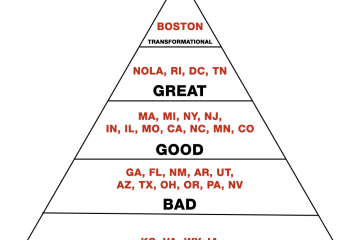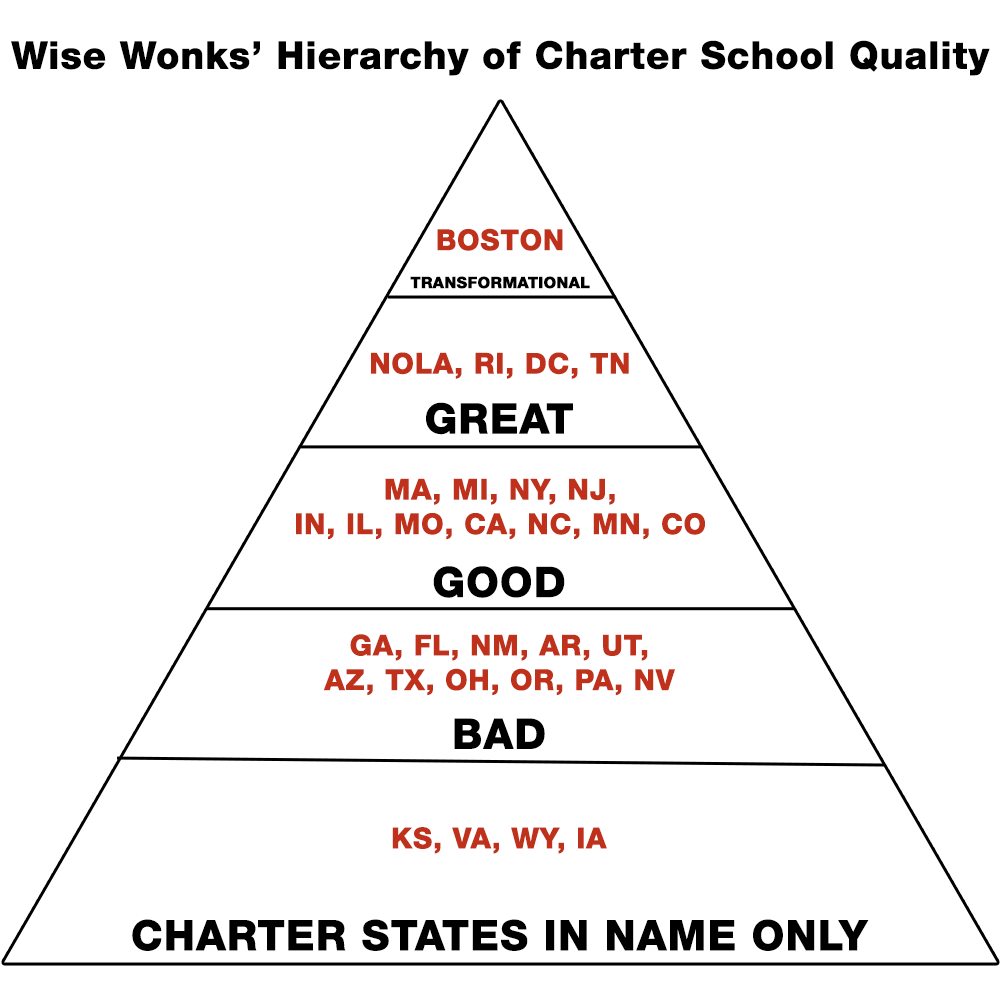Here follow the opinions of four experts on whether states should consider “pressing the pause button” for a couple of years before taking Common Core–aligned assessment results into account in high-stakes decisions on teacher evaluation, school accountability, and student promotion.
Let’s give students and teachers time
Vicki Phillips
As the school year comes to a close and we have a chance to reflect on the successes and challenges of the past nine months, I wanted to write to you about our work together to make sure the Common Core State Standards help teachers prepare their students for success. It’s been inspiring this past year to hear from teachers and educators in many states and school districts who are excited about the standards and the new lessons and materials they’ve been able to develop. Some are already seeing clear advances from their students.
An assistant superintendent in a Kentucky school district wrote to tell me that “reading and writing scores have increased across the board in our middle and high school....We see results not only in classroom visits, but on our state assessment, which is based on the common core.”
It is especially thrilling to hear about these students’ gains because we know they’re performing against rigorous standards. They’re taught to analyze and apply information, not just gather it and remember it. They’re encouraged to ask questions, solve problems, and think for themselves; they are becoming strong learners who can succeed in college or career; and they are gaining the skills they need to be good citizens in a democratic society.
Every student needs and deserves the same gains the students are getting in that school district. And they need it now. Every year is precious. The common core is an urgent cause.
But even the best new ideas aren’t self-fulfilling; they have to be put into practice wisely. That’s especially true when it comes to using assessment scores as a factor in student or teacher evaluations.
The Gates Foundation is an ardent supporter of fair teacher feedback and evaluation systems that include measures of student gains. We don’t believe student assessments should ever be the sole measure of teaching performance, but evidence of a teacher’s impact on student learning should be part of a balanced evaluation that helps all teachers learn and improve.
At the same time, no evaluation system will work unless teachers believe it is fair and reliable, and it’s very hard to be fair in a time of transition. The standards need time to work. Teachers need time to develop lessons, receive more training, get used to the new tests, and offer their feedback. Applying assessment scores to evaluations before these pieces are developed would be like measuring the speed of a runner based on her time—without knowing how far she ran, what obstacles were in the way, or whether the stopwatch worked!
Over the past seven years, we’ve had the privilege of working with extraordinary educators doing pioneering work to advance our common goals-improving student achievement with a focus on those students most in need. As I’ve talked with our partners over this past year, I have heard over and over again their wholehearted support for the Common Core and their very real anxiety about the challenges that come with change. The teachers’ anxiety is understandable: a rushed effort to apply the assessments could punish teachers as they’re trying new things, and any hiccups in the assessments could be seen as flaws in the standards.
That’s why the Gates Foundation agrees with those who’ve decided that assessment results should not be taken into account in high-stakes decisions on teacher evaluation or student promotion for the next two years, during this transition.
A number of states, including Kentucky, Maryland, Colorado, and Louisiana, have provided additional time for teachers to create their own lessons and curriculum, get new professional support, and become familiar with the assessments before they’re used as a measure of teacher performance. Each of these states is taking a different approach, but they all are listening to teachers and they are all taking steps to align their approach with what teachers need to make the standards succeed.
Common Core–aligned assessments play a crucial role in delivering on the standards’ promise. They measure students’ abilities in critical thinking and problem solving. They will give teachers, parents and students the information they need to improve learning. They’re an indispensable part of the Common Core, and they’re undergoing a careful practice run right now.
It’s valuable for students to actually take the Common Core–aligned tests without consequences during this period, so that teachers can get familiar with the tests, have a chance to offer their feedback, and get a feel for the students’ successes and challenges. It is an important part of the process of arriving at fair and reliable tests.
Including the assessment results in teacher evaluations even though they won’t count for two years also has benefits: First, the teachers can begin to use the assessments to inform their practice. And second, teachers can see how their performance looks using these measures and make sure it lines up with other measures of teaching practice. This is crucial in building teacher trust in the assessments.
In our view, allowing two years in which assessments will be administered and scored but not yet taken into account strikes the best balance between a commitment to teacher evaluations that measure student learning and a commitment to ensure that teachers will not be harmed as they complete the transition to the Common Core.
Under this approach, teachers get the time, tools and support they need to teach the new standards, and students have a chance to get used to the new tests. This can ensure that students receive the high-quality instruction that will get them ready for life—and can track their growth as they go. That would fulfill the goals of the Common Core: to promote the opportunity that is the purpose of our public schools. At a time when economic inequality is rising and social mobility is falling, the Common Core is the best way to keep faith with the American Dream.
Let’s take the time needed to get it right.
Vicki Phillips is the director of Education, College Ready at the Bill and Melinda Gates Foundation. This article was originally published as a “Letter to Our Partners.”
***
We must uphold our commitment to our students
Hanna Skandera
State education chiefs throughout the country, including the members of Chiefs for Change, have taken a thoughtful and comprehensive approach to managing the transition to more rigorous academic standards and assessments. States have negotiated transition plans in good faith with their partners. They have chosen different timelines with regard to using new assessment data to make decisions about teacher support and employment, student promotion or graduation, and school accountability. A one-size-fits-all approach to this work is imprudent and disregards the hard work that has already been done.
Let’s not forget that states started adopting the Common Core State Standards in 2010. By now, in many states, teachers have been trained, lesson plans have been developed, students are being taught under the new standards, and a practice run of the new Common Core–aligned tests has been successfully completed.
Standards alone will not improve student learning. They must be combined with great teaching and high-quality assessments to measure whether those standards were learned. State education leaders have been preparing for the full implementation with detailed plans to ensure fair, valid and reliable accountability systems are in place. We owe it to our teachers and students to give them the feedback that they deserve in a timely manner and to use that information to make improvements.
We must allow states to work with their partners to determine what is best for them, taking into account their own unique state circumstances and with the ultimate goal of producing better educational outcomes for all children. We must uphold our commitment to our students by ensuring the standards are measured and results are used to build a world-class education system that prepares each and every student for college and career in the twenty-first century.
Hanna Skandera is chair of Chiefs for Change and secretary of the New Mexico Public Education Department. The article above originally appeared as a press release issued by Chiefs for Change.
***
Between a rock and a hard place
Chester E. Finn, Jr.
I’m torn by the recent statements about a Common Core accountability “moratorium” issued by Vicki Phillips and Hanna Skandera. Call me a wimp, caught between two powerful women whom I like and respect, but honestly, they’re both right, albeit in different ways.
Attaching consequences to student achievement is always touchy, tricky, and technically complex, whether we’re talking about promoting and graduating kids, evaluating and rewarding (and retaining/dismissing) those who teach them, or giving grades (and interventions) to entire schools and districts. The data may be shaky, the analyses precarious, and the consequences almost inevitably unfair to some.
Change the standards, the curriculum and instruction, the tests and cut scores, and all such actions become even more challenging. And it’s no secret that educators are less happy being “held to account” for pupil results in the midst of all this change than they were under the old standards and tests (though many were plenty cranky on this topic before the standards changed!). They legitimately point out that in many states the new assessments aren’t even visible yet and in many districts the new textbooks aren’t even available.
And yet. We have plenty of stark evidence that real change in student, teacher, and school performance doesn’t come from standards or tests alone. Sure, the data feeding back into the system are apt to produce slow improvement as more educators become more adept at applying that information to their classroom practice and building leadership. But consequences are what really get people’s attention and prod them to make real-time changes that they might not otherwise be willing to make: The kid working on homework instead of playing an electronic game, studying for the end-of-course exam rather than partying, going to summer school rather than being held back. The school that is awakened and moved to action by its “D” grade—and loss of pupils—leading to structural and staffing changes that were otherwise just too painful. The entire state seeing its performance rise—this accounts for the “Massachusetts Miracle,” insists former commissioner Dave Driscoll—once everyone realized that students really, truly had to pass those tests in order to graduate.
Yes, it’s behaviorist, and few educators lean in that direction. But it’s real.
That doesn’t make it easier or fairer to attach consequences to new standards, tests, and classroom practices. But if the head of a state education system believes that her (or his) state is prepared (or obligated) to stick to its guns and benefit its pupils by persevering with wrenching changes that make some adults uncomfortable, that’s the state’s prerogative. That’s why we elect leaders: to make tough decisions. And there’s a pretty good chance that it’ll turn out to benefit the kids.
The Chiefs for Change are less patient than Ms. Phillips. That doesn’t make her wrong. And states that lack the readiness—or gumption—to proceed swiftly to adjust their accountability to the new standards probably should hit the pause button she is recommending. But places that are ready should move forward, not dither. Nobody’s child has the luxury of a two-year moratorium on his own school experience—or the life that follows.
This article originally appeared as a blog post on Flypaper.
***
Accountability drives results
Patricia Levesque
With students now out for the summer and states, local school districts and schools now preparing for the coming academic year, many in the education reform community are focusing on the rigorous new tests that will be in place next spring.
In many states across the nation, these new assessments will measure students’ mastery of the skills and knowledge outlined in the Common Core State Standards. We believe that if properly implemented, these high-quality math and English language arts standards will raise the academic bar in American classrooms, ensuring children are ready for life after high school, whether that involves enrolling in college or pursuing a career.
But it’s important everyone understand the limits of standards. By themselves they do not make kids smarter. Nor do they make teachers better, or require that school districts be more flexible, responsive and efficient.
In fact, Eric Hanushek, one of the nation’s most respected education researchers, fears that Common Core may distract us from pursuing basic school reforms that have been proven to accomplish those goals. “As history clearly indicates,” he says, “simply calling for students to know more is not the same as ensuring they will learn more.”
Consider California. It had perhaps the best language arts and math standards in the nation, regarded as equal to or even superior to those in Common Core. If standards reflected achievement, California students would be consistent leaders in the National Assessment of Educational Progress (NAEP) test results.
Instead, California is a consistent under-performer.
Florida, on the other hand, has become a national leader in NAEP learning gains. In comparison to California, Florida has adopted a wide slate of education reforms, including an aggressive K–3 literacy policy, an A–F scale for grading schools, rewards for success and sanctions for failure, tenure reforms, digital learning opportunities, and a host of choice options, including charter schools and scholarship programs for low-income students or those with learning disabilities.
School improvement requires multiple approaches, centered on accountability for adults and school choice for parents. Simply put, the system responds differently when student achievement is regarded as mandatory rather than optional, and when parents have alternatives to failing neighborhood schools.
California lacks such reforms, in effect turning its standards into a wish list.
We just saw this in the historic Vergara v. California ruling. The state grants teachers tenure far too soon, in only eighteen months, and maintains ironclad job protections regardless of job performance. Incompetent teachers stay on the job, with evidence revealing that they are most likely to wind up in low-income schools.
We can’t measure the specific impact of this, but can point out a glaring statistic. In the 2013 NAEP results, low-income fourth graders in California ranked near the bottom nationally in reading. They are almost two grade levels behind their peers in Florida (218–200 NAEP points). The difference is that Florida has a third-grade retention policy for functionally illiterate children, which is backed by intensive remediation. The state’s A–F school grading formula also takes into account gains made by the lowest performing quartile of students.
Accountability drives results.
This is what is concerning about calls from the teachers’ unions and even the Bill & Melinda Gates Foundation, one of our donors, for across-the-board moratoriums on accountability. The stated intent is to smooth the transition into the Common Core standards. But states that have implemented sound accountability policies do not need moratoriums. They are ready to move forward and maximize the potential of the new standards.
In my experience, pressing pause means stopping forward momentum. And when that happens, things can go backwards. There can be changes in leadership and political will. States that press pause likely will find it difficult to restart accountability policies.
Given the longstanding antipathy that unions have had toward accountability, it’s hard to imagine them suddenly embracing the concept a few years from now simply because they ostensibly support higher standards.
Standards cannot be used as a strategy to loosen accountability. If testing data reveal that children aren’t learning, or that certain teachers are not effective, how can we simply put that information on hold? Given what we learned in Vergara v. California, the losers in this equation will be our most disadvantaged students.
One of the most compelling arguments for higher standards is the belief that if we hold all children to high expectations, we can close the achievement gap. But moratoriums on accountability could well have the opposite effect.
Lastly, let’s be clear about accountability. We do not believe high-stakes decisions should be made about children or teachers based on one test given one day. There should be multiple measures to assess students and teachers, and multiple opportunities to achieve success.
Adopting high standards is easy. Backing them up with the reforms required to ensure they will be met is not. It requires taking on powerful special interests. It often entails telling people what they don’t want to hear about the quality of their schools and the academic achievement of their children.
The solution for states is simple. Be thoughtful, but move forward. Make children the focus of your education systems. Make their ability to read and write, to multiply fractions, and solve for X the sole criteria for judging success. And if you do, then the Common Core standards and rigorous new assessments adopted by states will be a success.
Patricia Levesque is the chief executive officer of the Foundation for Excellence in Education. This article originally appeared as an open letter issued by the Foundation for Excellence in Education.






